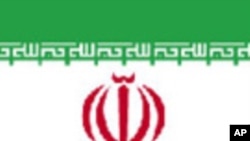In Iran, fifty-four members of the Baha’i religious community have been convicted of the so-called crime of spreading anti-regime propaganda. Three were sentenced to four years in prison; the others received suspended one-year sentences.
Amnesty International identifies the three Baha’is sentenced to prison as Haleh Rouhi Jahromi, Raha Sabet Sarvestani, and Sasan Taqva. They were arrested after they helped organize a program to teach underprivileged children in the city of Shiraz in southern Iran. The other convicted Baha'is were also involved in the program.
The three have been in prison since November. In a written statement, U.S. State Department spokesman Sean McCormack said, “The Iranian regime continues to deprive its citizens of a future free of fear, abuse, and arbitrary arrest." “We urge the regime," he said, "to release all individuals held without due process and a fair trial, including the three young Baha’i teachers."
The Baha’is are the largest non-Muslim religious minority in Iran, numbering more than three- hundred thousand. Regarded by the government as apostates, they face discrimination and persecution, including confiscation of property, expulsion from universities, and arbitrary arrest and imprisonment. They are forbidden to teach or practice their faith or to maintain links with Baha’is outside Iran. In its report on international religious freedom, the U.S. State Department says the Iranian government “repeatedly offers Baha'is relief from mistreatment in exchange for recanting their faith.”
John Hanford, U.S. Ambassador at Large for International Religious freedom, spoke of Iranians who attempt to exercise this fundamental right:
“In Iran the regime is unrelenting in its repression of Baha’is and has created a threatening atmosphere for nearly all non-Shia religious groups, including Sufi Muslims, some Christian groups and members of the Jewish community.”
The U.S. co-sponsored a resolution, passed by the United Nations General Assembly in December, expressing serious concern over the Iranian regime’s oppression of Baha'is and other religious minorities. Ambassador Hanford says the United States will not ignore those who face religious persecution and looks to the day “when all may practice their beliefs without restriction or reprisal.”












